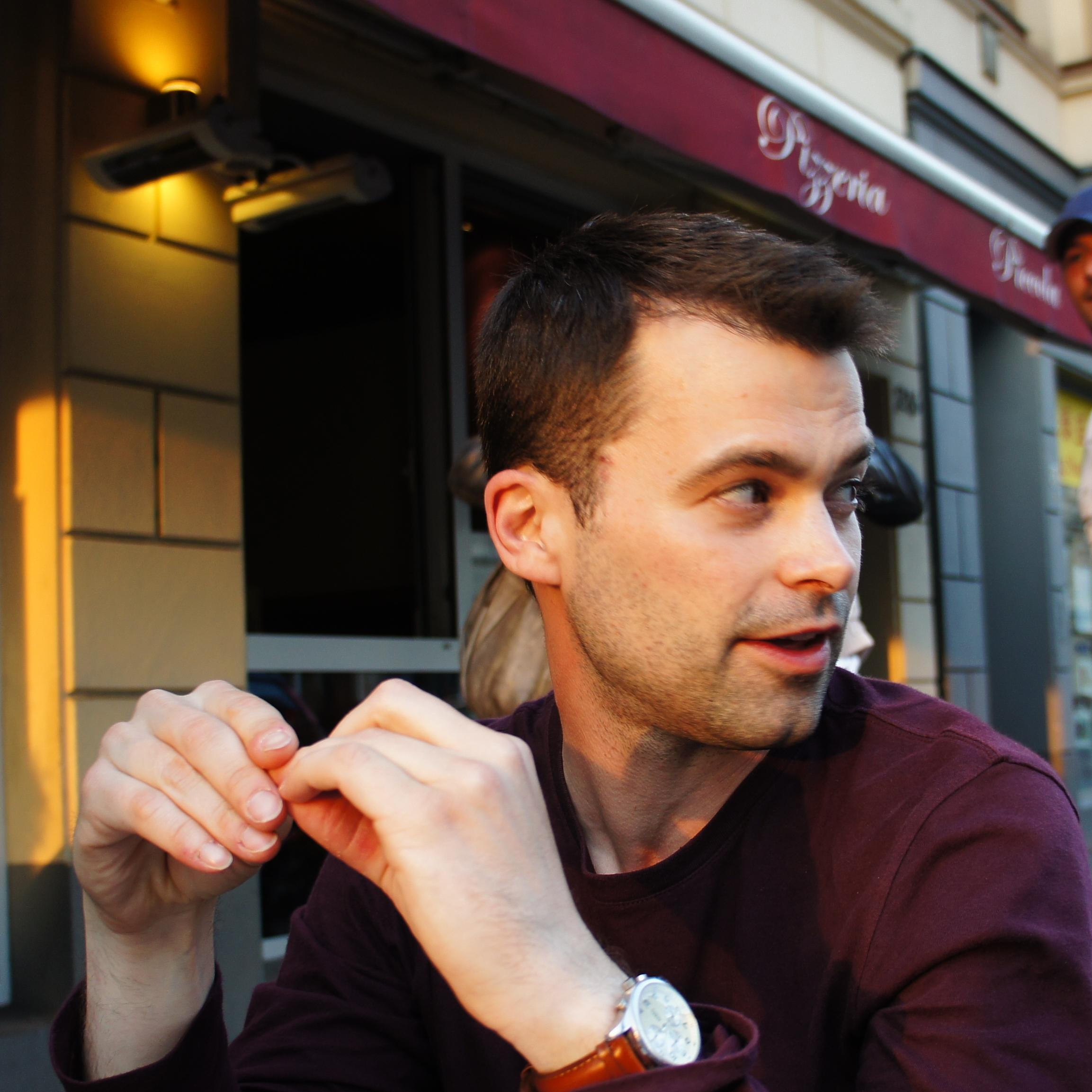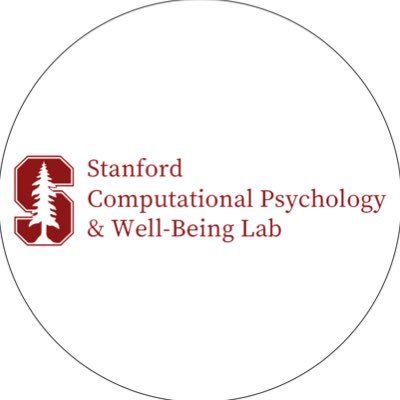
Chris Kelly
@chris_a_kelly
Followers
878
Following
1K
Media
4
Statuses
206
Postdoc Fellow @StanfordHAI | Previously Cognitive Neuroscience PhD @affectivebrain @UCL @MPC_CompPsych @MIT | Irish ☘️
Cambridge, MA
Joined October 2016
Excited to share our new article w/@affectivebrain in @NatureHumBehav. Key finding: consuming more negative content online is tied to poorer mental health—and vice versa. 💻🧠 Article link: https://t.co/OZ8W42exq0 🧵 Read on for more insights from the study
nature.com
Nature Human Behaviour - In four studies, Kelly and Sharot reveal that web-browsing both reflects and affects mental health. Poorer mental health leads to more negative content consumption, which...
4
28
73
🎉 Excited to share my first preprint as first-author! We show that population well-being estimation from social media language outperforms surveys and traditional proxies like household income. Link - https://t.co/InAhSIy8We (1/5) 🧵👇
1
2
2
3/ So, monitoring the questions people ask online—rather than just the topic they search for—could reveal clues about both population and individual stress levels.
0
0
1
2/ We examined this in two contexts: 1. A population-level study during COVID (Google “How” searches + self-reported stress) 2. A controlled experiment where stress was induced. In both, higher stress aligned with an uptick in “How” queries.
1
0
1
New(ish) paper w/ @affectivebrain & @Bastien__Blain in @SciReports! We find that during stress (both COVID and personal events), people search for more “How” questions online. This shift indicates a heightened demand for actionable info. Link: https://t.co/WPE9DrWBUr 🧵1/3
nature.com
Scientific Reports - “How” web searches change under stress
1
7
19
📢 New publication with @affectivebrain in @NatureHumBehav Key finding: Human-AI interactions create feedback loops, where AI amplifies human biases, which are then further internalized by humans across perceptual, emotional & social domains. https://t.co/kOTCiN9yZP 🧵1/6
nature.com
Nature Human Behaviour - Glickman and Sharot reveal a human–AI feedback loop, where AI amplifies subtle human biases, which are then further internalized by humans. This cycle, observed...
4
43
133
"Just as we now glance at nutrition labels without a second thought, we could one day check content labels before diving into a news article or blog post." Column: Why the internet needs content labels 📝 Tali Sharot and Christopher A. Kelly
time.com
A better digital diet can bring value to our lives. It starts with internet content labels.
3
11
30
Check out this fantastic commentary on our article ( https://t.co/4vsy0lqWMC) by @ALCamerini, published today in @NatureHumBehav 🔗
nature.com
Nature Human Behaviour - Mental health problems pose a great burden for today’s societies. The internet and social media are blamed for contributing to the burden, but the evidence to date is...
1
4
8
.@chris_a_kelly and @affectivebrain reveal that web-browsing both reflects and affects mental health. Highlighting webpage emotional impacts helped reduce negative browsing and improve mood. https://t.co/juY8vabkpV
nature.com
Nature Human Behaviour - In four studies, Kelly and Sharot reveal that web-browsing both reflects and affects mental health. Poorer mental health leads to more negative content consumption, which...
0
8
35
6/ Sign up for the Digital Diet beta waiting list: https://t.co/4UPyvOETpc Discover more in our preprint: https://t.co/Ye6agqCipw
@UCLPALS @mitbrainandcog @MPC_CompPsych
0
0
3
5/ We have transformed this intervention into a new tool—Digital Diet—designed to improve web-browsing by labelling the emotional tone, practicality, and informativeness of online content.
1
0
1
4/ But there’s hope! We labelled the emotional impact of Google search results (indicating whether they were likely to make users feel better, worse, or neutral), which helped users make informed browsing choices, reduced exposure to negative content, and improved their mood.
1
0
1
3/ Causality: By manipulating the webpages people browsed, we then showed that: -Negative content worsens mood; -Worse mood drives people to browse negative content, creating a self-reinforcing loop.
1
0
1
2/ Using NLP, we analysed the emotional tone of webpages participants browsed (N = 1,145). We found that participants with poorer mental health tended to browse more negative content, which subsequently left them feeling worse.
1
0
2
Do people feel that the current state of generative AI aligns with their values? We asked 6,362 people in 6 countries. 👉Spoiler: Most say no (d = 1.061). But there is huge variation in perceived alignment across countries (partial η² = 0.132). WP: https://t.co/eDiBrBUL4i 1/n
1
20
40
🚨 New paper alert! 🚨 “Considering information-sharing motives to reduce misinformation” out now in Current Opinion in Psychology with @affectivebrain. https://t.co/xhJ7BkC6zE (1/n)
1
8
26
🚨New WP: Can LLMs predict results of social science experiments?🚨 Prior work uses LLMs to simulate survey responses, but can they predict results of social science experiments? Across 70 studies, we find striking alignment (r = .85) between simulated and observed effects 🧵👇
25
256
909
🚨 Preprint Alert 🚨 https://t.co/FzQfU3m35M How do we aggregate emotional information on social media feeds, and are we accurate in our estimation of what other people feel? Our new paper suggests that we tend to amplify aggregated emotional content. Check out our thread. 🧵
1
14
46
I'm giving a talk tomorrow at Columbia-- Public Health (Thur 2/29, 1-2.30pm) -- NLP and LLMs for mental health. “Using Digital Text and LLMs to Understand and Improve Individual and Community Mental Health” If you happen to be around and free, please join!
0
6
27















